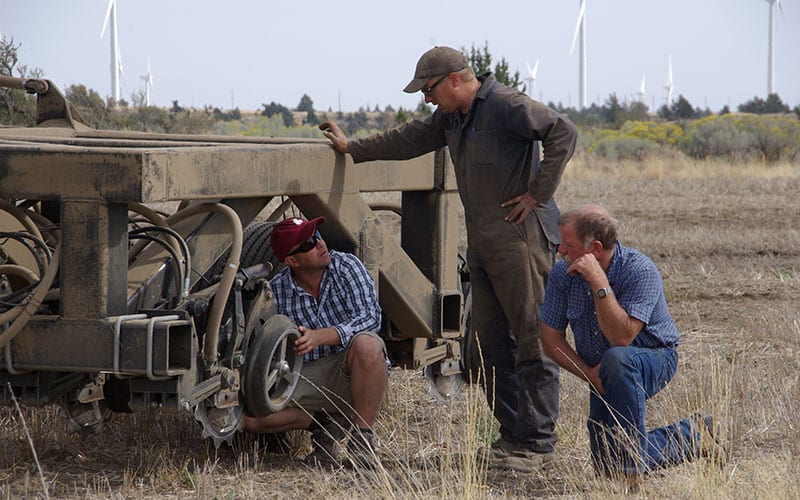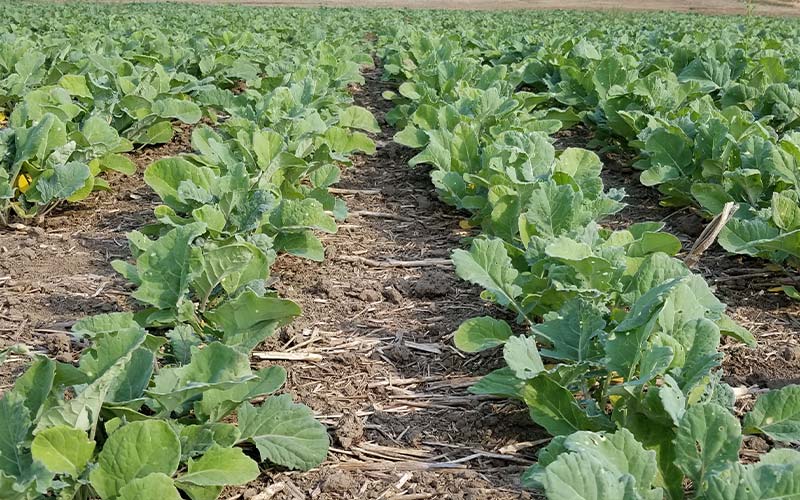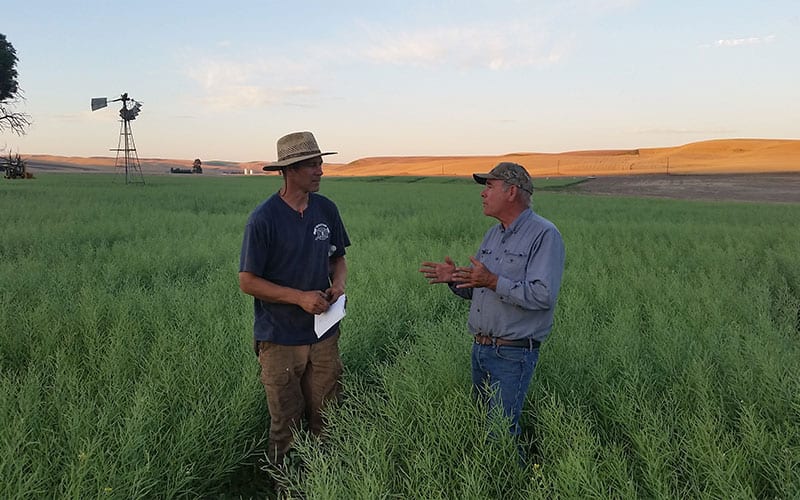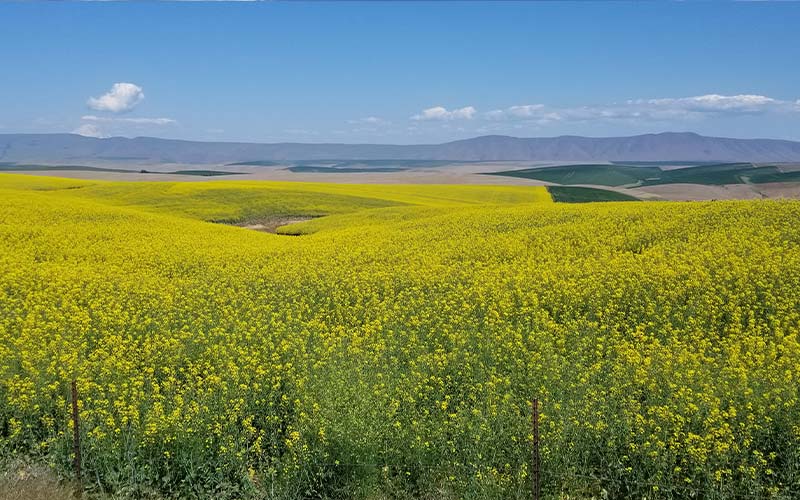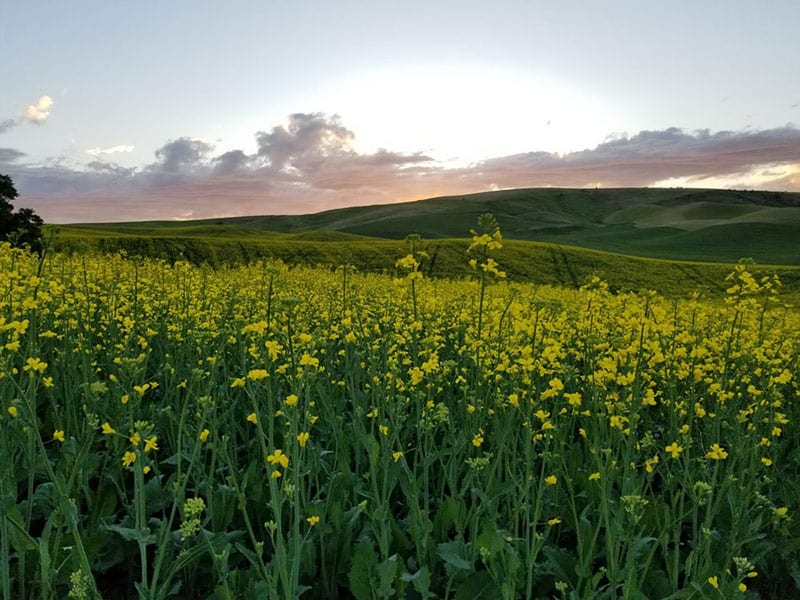Pacific Northwest Canola Association What is Canola?
Canola is an oilseed crop produced around the world. The plants are from three to seven feet tall and develop pods from which seeds are harvested and crushed to produce canola oil and meal. The small, bright yellow flowers are not only beautiful to see, they also provide excellent forage habitat for pollinators and other beneficial insects. Canola seeds are brownish-black in color and contain 35-45 percent oil. This large percentage of oil comes in a small package; there can be as many as 140,000 seeds in one pound!
There are many canola benefits for farmers and consumers – read on and explore our website to learn more!
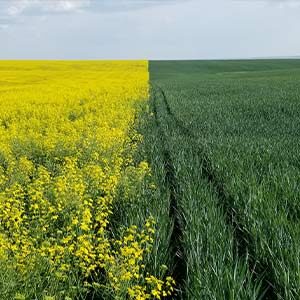
Enhanced Crop Rotation
A unique feature of canola production in the Pacific Northwest (PNW) is that both spring and winter canola can be grown, providing a flexible option for a wide range of environments and crop rotations. Spring canola is more suited to the annual cropping regions while winter canola is common in areas of lower rainfall regions and under irrigation. Canola can be an excellent fit with cereals, pulses, and other oilseeds.
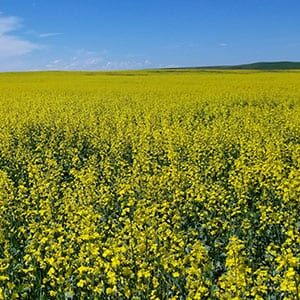
Insatiable Market
Acreage and production in the PNW continue to increase, with MT and WA second and third highest in the U.S. in 2021. In 2020, the U.S. Dept. of Agriculture's National Agricultural Statistics Service estimated a record 276,000 harvested acres and record production of 530 million pounds in the PNW. Couple that with processing facilities in MT, OR, and WA, and the stage is set for this high-demand market that is here to stay.
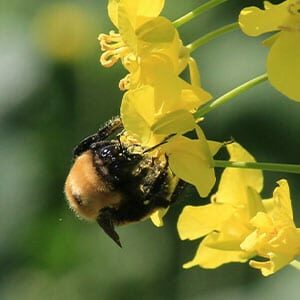
Good for bees and our ecosystem
There’s been a strong link detected between canola and the honey industry. Bees are drawn to the color and scent of canola, which provides a good source of nectar, and the productivity and quality of canola are improved by bee pollination. Apiarists are increasingly seeking out PNW canola producers to host their beehives; the extended flowering period is ideal for the honey bees to rebuild strength after pollinating almond orchards in California.
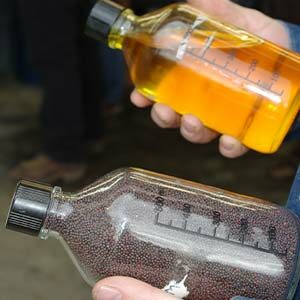
Proven Health Benefits
Canola oil is heart-healthy – it has the least saturated fat and most omega-3 fat of all cooking oils. It protects against heart attacks and strokes by helping to lower bad cholesterol. It may also help reduce the risk of heart disease, cancer, and memory loss.
Hear From PNW Growers Stay tuned for a ‘Meet the Farmer’ feature coming soon!
The best resource for learning about the benefit of canola for farmers is the growers themselves. Take a few minutes to hear directly from farmers around the PNW about why they grow canola. For some, it is weed control; for others, it's improved soil quality, while others cite the break from disease cycles that canola provides. With demand remaining competitive with cereal and pulse crops, canola has quickly become the opportunity crop of the future, and these growers are in it for the duration!

